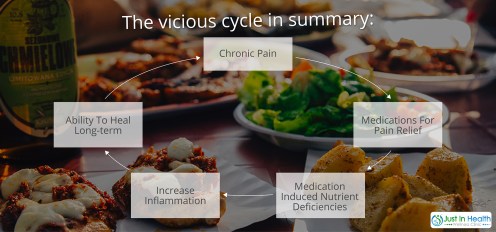

By Dr. Justin Marchegiani
Food allergies and intolerances are common culprits of inflammation, which is considered to be the root of modern diseases. The body can be allergic to any food, therefore any food is capable of causing inflammation, potentially leading to joint pain and arthritis.
Most doctors who are specialized in treating arthritis and many other joint issues tend to rely on medications that only address symptoms of the conditions and totally ignore the underlying cause. Many patients who go to a rheumatologist for joint pain are prescribed medications that may provide temporary relief, but have a dangerous side effects in the long term.
In the last five years of seeing patients with joint pain, I have found that many patients respond positively to simple nutritional and dietary changes. By removing inflammatory foods that aggravate the immune system, my patients’ joints see great improvements thanks to these dietary changes alone.
Medications do nothing more than mask the symptoms of pain, all the while aggravating other issues, such as gastrointestinal and liver problems. These medications also cause mineral deficiencies (folic acid, vitamin C, and other nutrients) which continues to worsen the problem the drugs were originally prescribed for. Proper nutrient levels are very important for helping joints, ligaments, and tendons to heal properly.
While you’re on a medication in hopes of it fixing your joint pain, you are actually setting yourself up for more long-term severe joint pain in the future. Addressing the underlying cause (the source of your inflammation) is the best way to solve the problem- for good.

Click here for help determining the cause of your joint pain.
Osteoarthritis
Rheumatoid arthritis
Ankylosing spondylitis
Lupus
Spondylitic arthritis
Psoriatic arthritis
reactive arthritis
Fibromyalgia
Scleroderma
All grains, including: wheat, barley, rye, oats, corn, rice, millet, sorghum, etc.
Lectins
Night shades (potato, eggplant, tomato, peppers, tobacco).
Sugar
Legumes (peanuts, soy, beans)
Wild-caught fish and/or fish oil
Grass-fed Meat
Coconut oil
Lower glycemic fruits, such as berries
Non-starchy vegetables such as broccoli, cauliflower, spinach, and asparagus
Herbs such as turmeric, garlic, and ginger
Green tea
Experiencing Joint Pain? Click here to ask a functional medicine doctor about it.